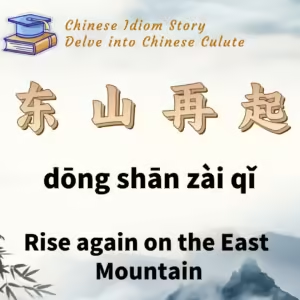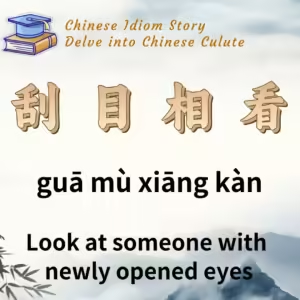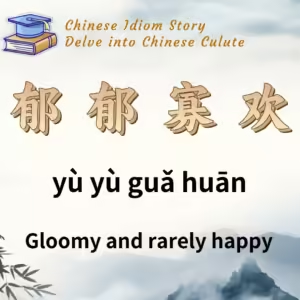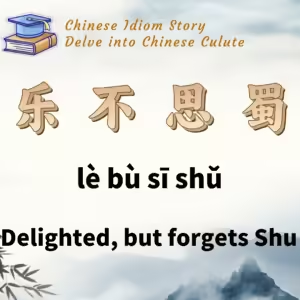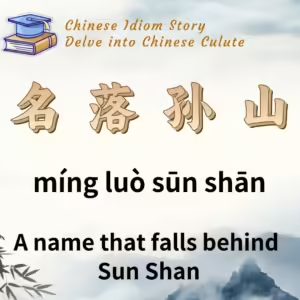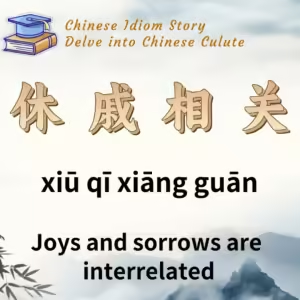
Chinese Idiom: 休戚相关 (Xiu Qi Xie Guan)
English Translation: Joys and sorrows are interrelated
pīn yīn: xiū qī xiāng guān
Idiom Meaning: To share a common interest, indicating a very close relationship where one’s fortunes and misfortunes are interconnected.
Historical Source: “Guo Yu” (《国语 ·周语下》)
Idiom Story:
In 580 BC, after Duke Li of Jin ascended the throne, he feared that the royal princes would create turmoil in their quest for power, leading him to exile many of them. One of these princes, named Ji Zhou, was sent to serve under Duke Shan of the Zhou Dynasty.
Despite being in a foreign land, Ji Zhou was a man of great integrity who cared deeply for the safety and well-being of his home state. He felt disheartened whenever he heard of misfortunes in Jin, and he rejoiced whenever he learned of their good fortunes. Duke Shan admired Ji Zhou’s character and valued him highly. Before passing away, Duke Shan instructed his son, Duke Qing, to treat Ji Zhou sincerely, saying, “He cares about the joys and sorrows of Jin; he does not forget his roots.”
Ji Zhou’s deep concern for his homeland signified his loyalty. It was foretold that upon his return, he would be beloved by the people.
Indeed, shortly after, an internal strife arose in Jin, leading to the death of Duke Li. Ji Zhou returned and was hailed as the new ruler, known as Duke Dao of Jin.
This story gave rise to the idiom “休戚相关,” emphasizing the connection between the fortunes and misfortunes of individuals, reflecting a close and interdependent relationship.

